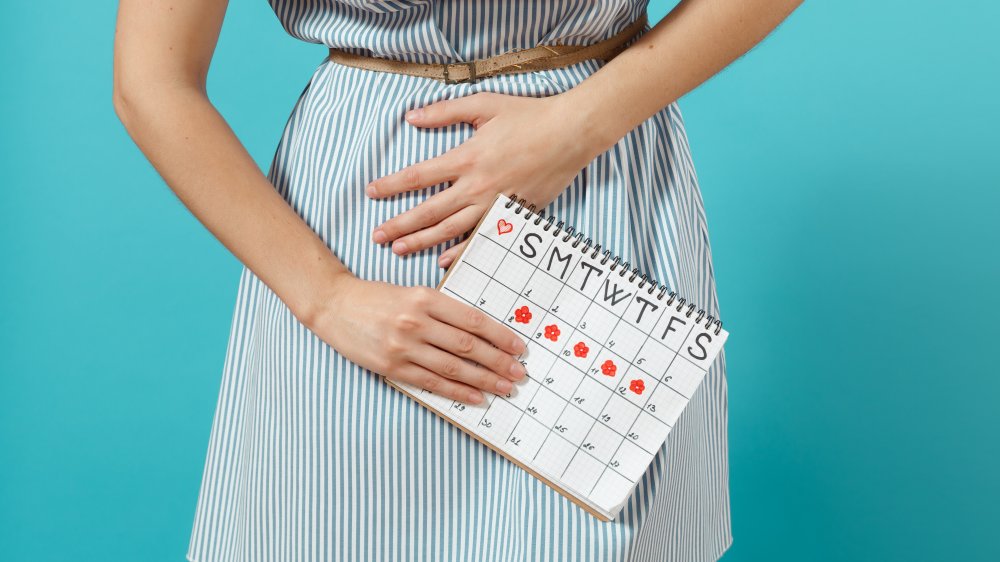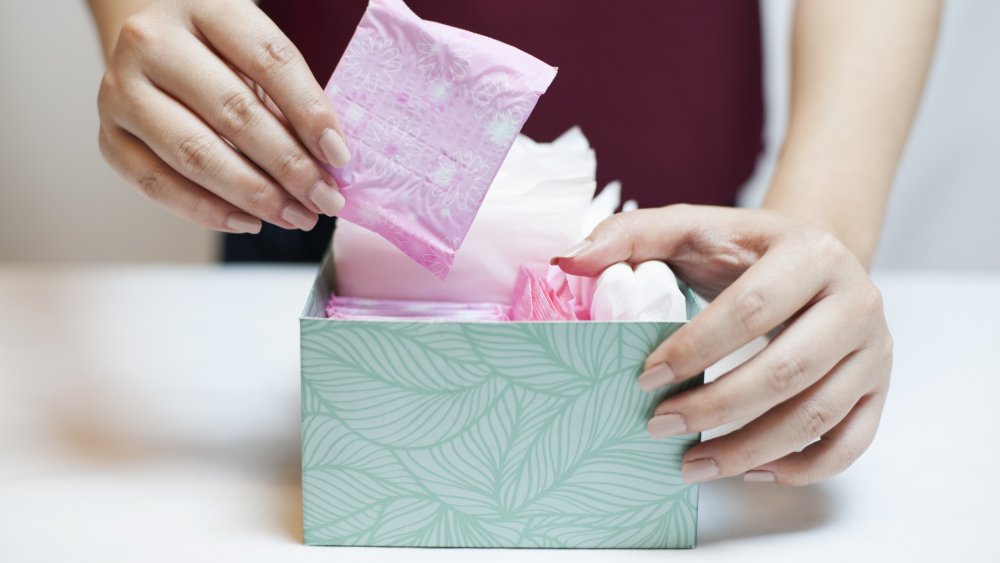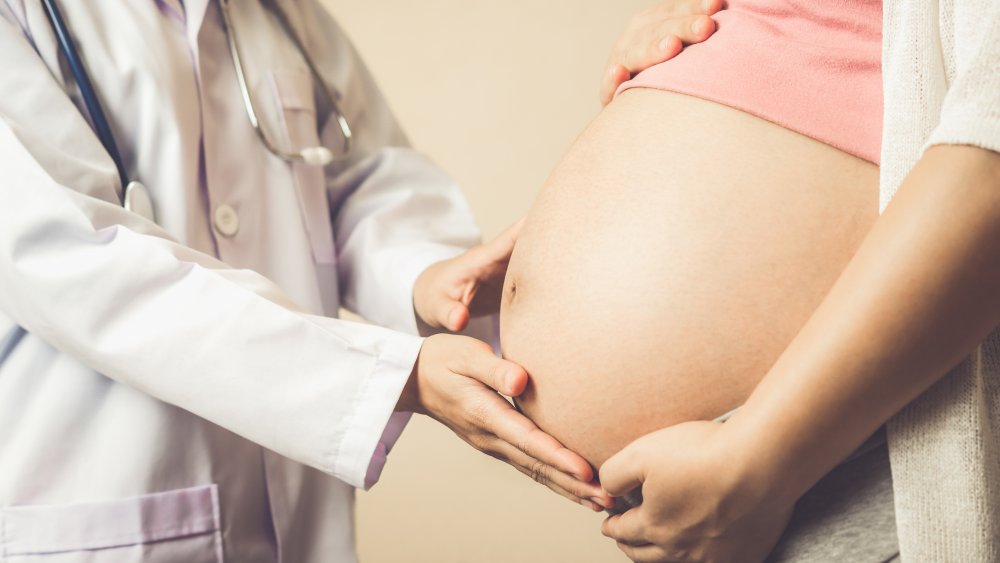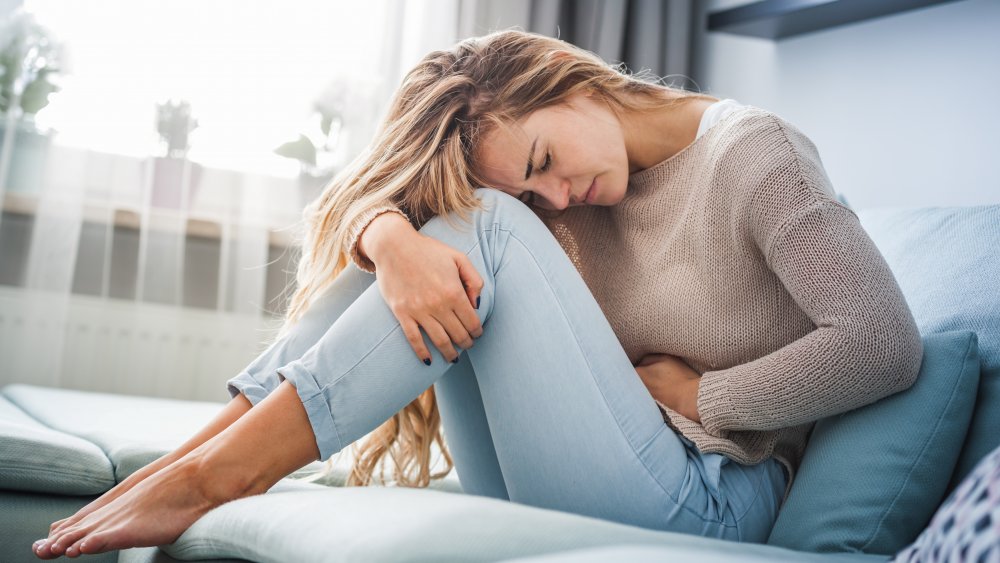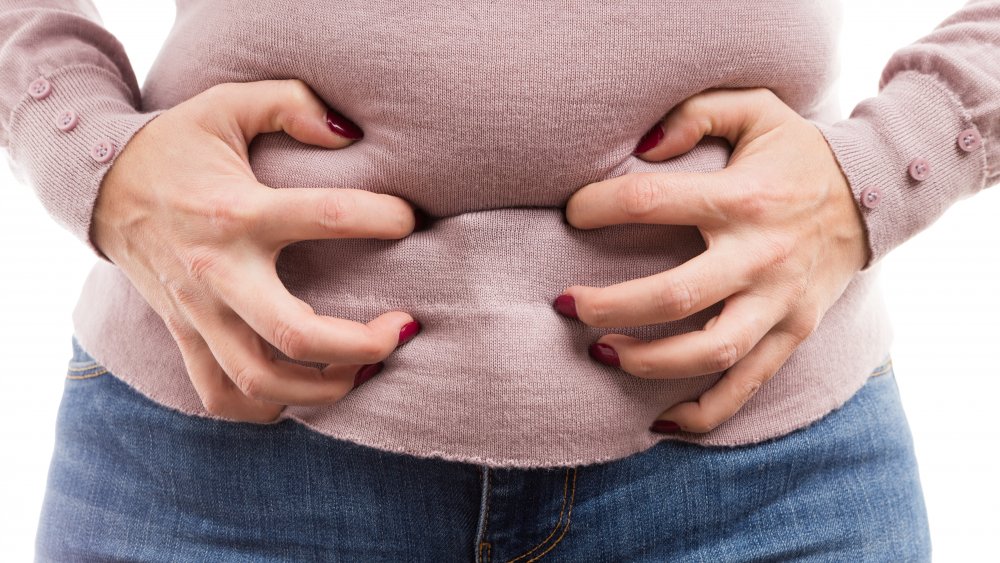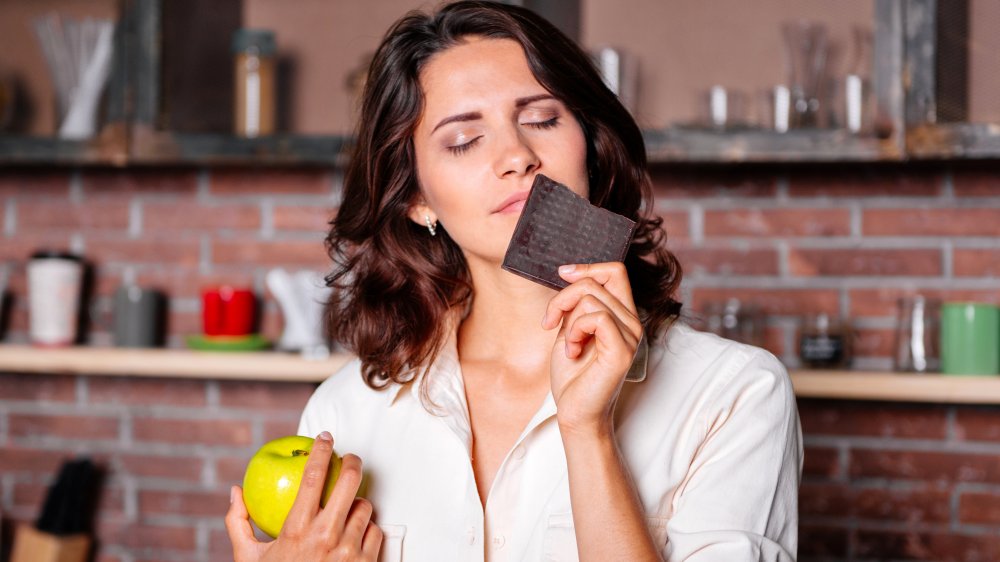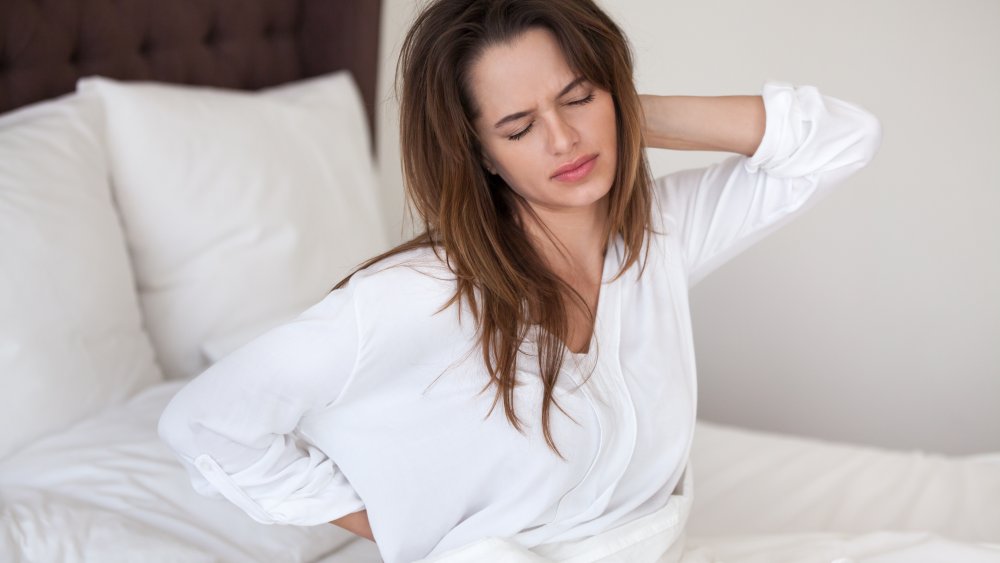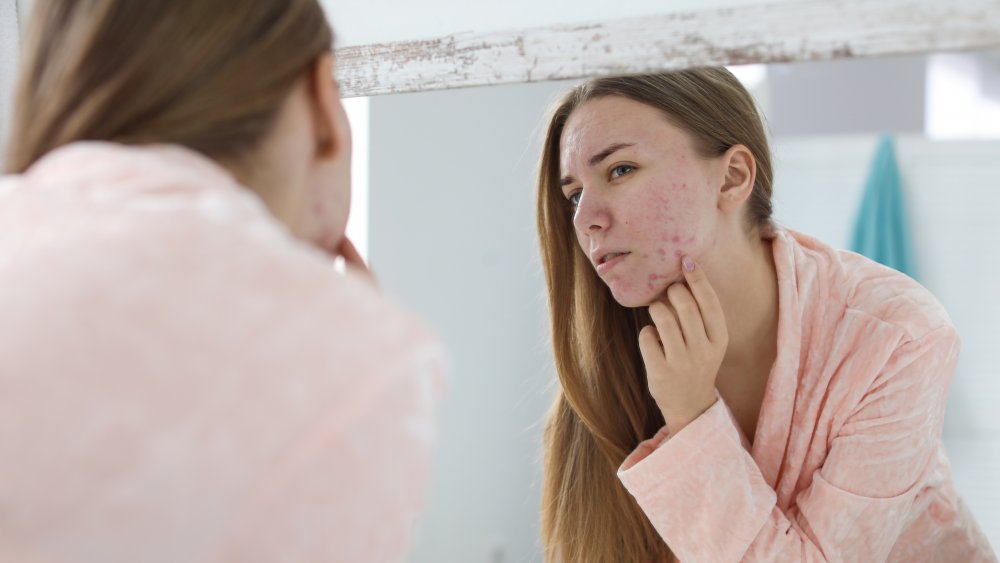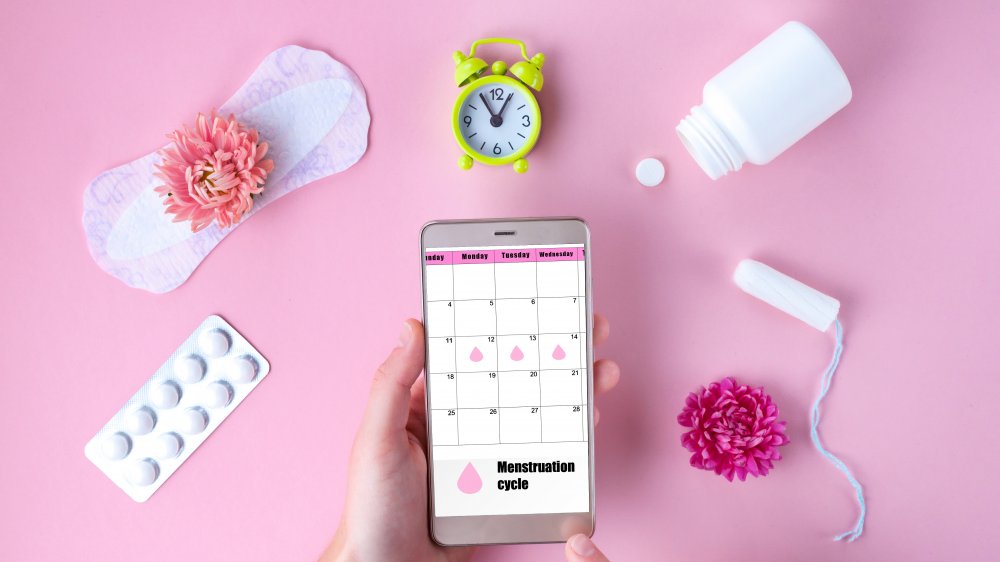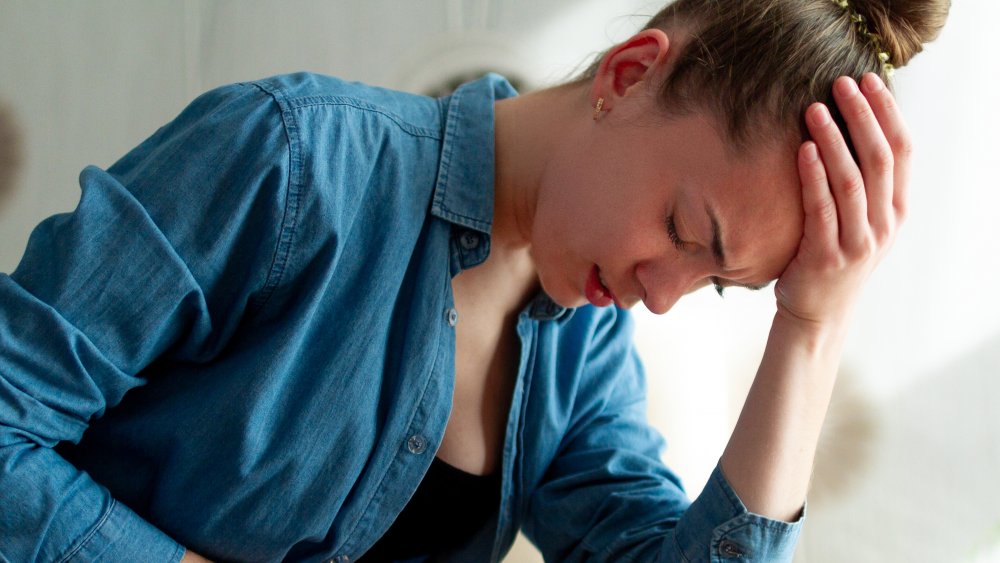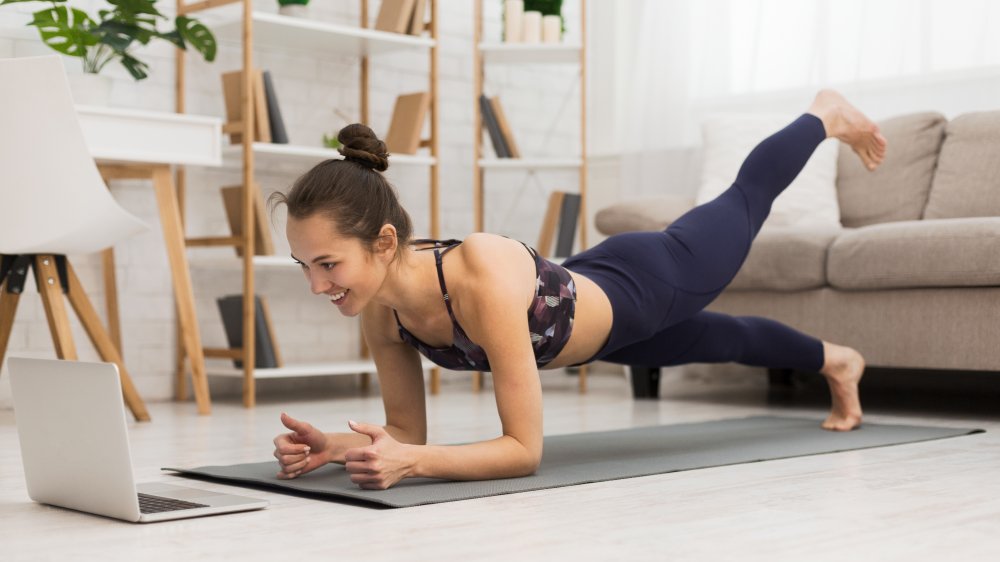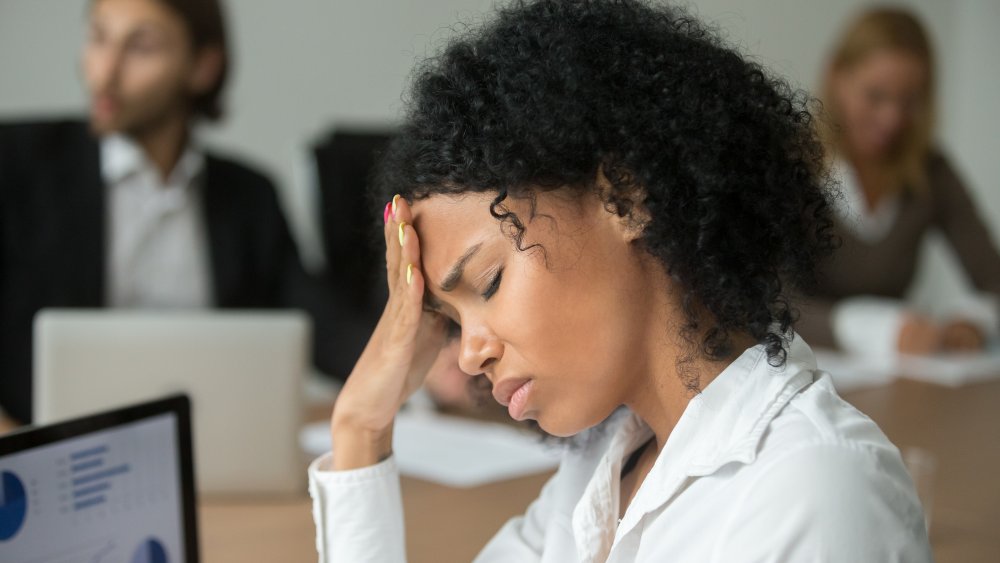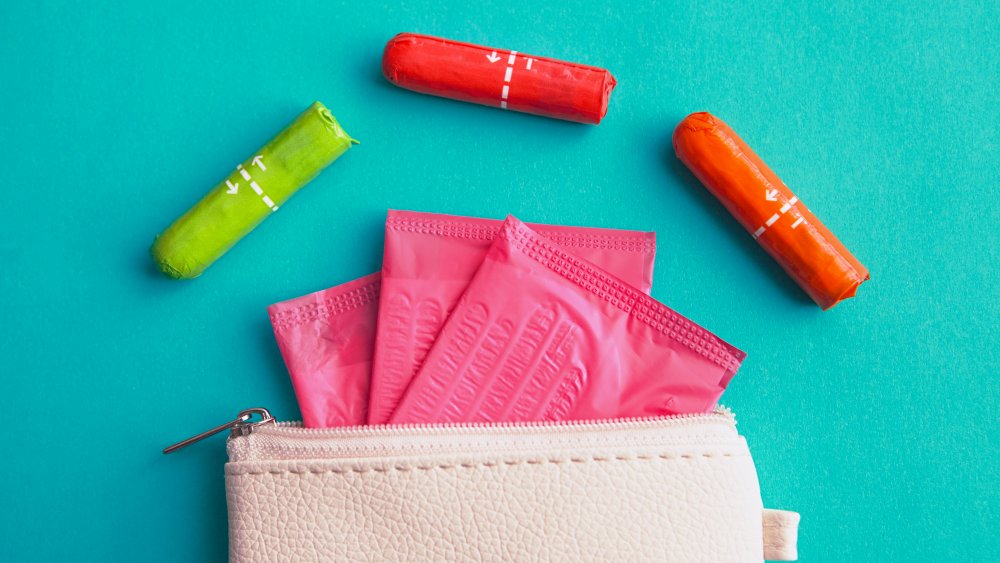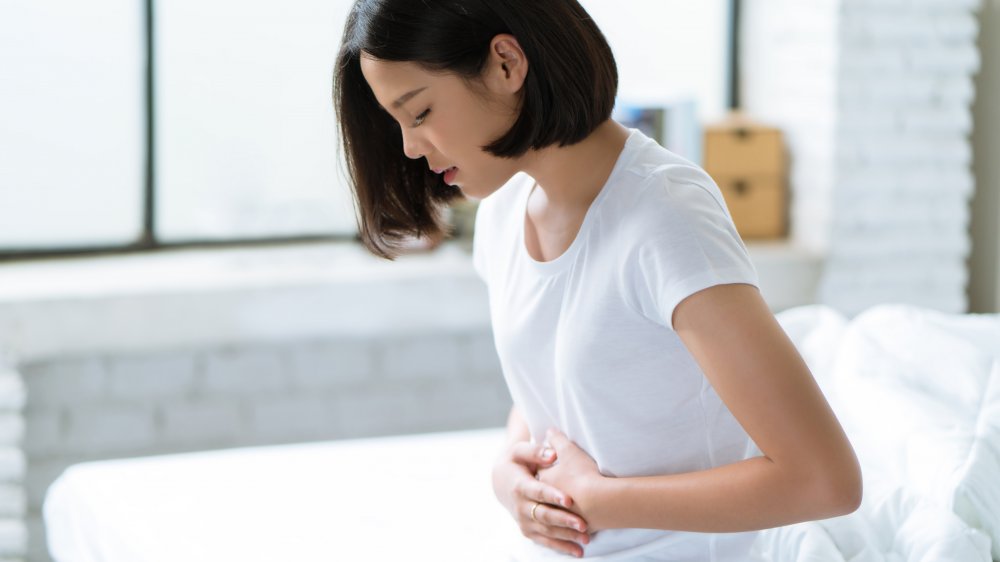When You Have Your Period, This Is What Happens To Your Body
Whether you dread your period's arrival each month or celebrate it and what your menstrual cycle means for your health, it's a tricky little thing to deal with and keep track of. But no matter how you feel about your period, there are certain physical and emotional effects it has on your body that you just can't deny.
Most women can remember exactly how old they were, where they were, and how they felt when they got their first period. A lot of times, it can be scary for pre-teens or teens. As explained by the Office on Women's Health, your period kicks off your menstrual cycle when the lining of your uterus begins to shed. It sounds intense, but there's actually more happening to your body than just some shedding. In fact, when you have your period, there's a lot that's going on in your body. While every menstruating woman's experience may differ, here's what can happen when you have your period.
You'll obviously be bleeding when you have your period
The most obvious sign that you have your period is, of course, bleeding. According to the U.S. Department of Health and Human Services' Office on Women's Health, menstrual bleeding is what kickstarts your period. "When you menstruate, your body discards the monthly buildup of the lining of your uterus (womb)," the Office on Women's Health explained. Then the blood and tissue move from your uterus, past the cervix and out of the vagina.
However, even though it's totally natural and common to bleed on your period, there is such a thing as too much bleeding and that can be dangerous. According to The Society of Obstetricians and Gynecologists of Canada, period bleeding is dangerous if it lasts longer than seven days, if you go through multiple pads or tampons in the span of an hour, or if your blood has large clots in it. If that's the case, you'll want to talk to your OB-GYN. However, period bleeding in itself is totally normal, and just your body's way of staying healthy.
When you have your period, your body is preparing for pregnancy
As obvious as it may sound, the biggest thing that happens to your body when you have your period is related to fertility. In fact, the only reason women even get periods is to prepare their bodies for a possible pregnancy. Obviously, not everyone wants to get pregnant, but still your period comes for that exact reason.
"The menstrual cycle has one purpose and one purpose only: reproduction," Lauren Streicher, M.D., a Northwestern University associate professor of clinical obstetrics and gynecology, told Self. "The entire menstrual cycle is set up to prepare your body for possible pregnancy." In fact, Streicher added that when you start your period, you also start the proliferative phase of your menstrual cycle. "The goal of the proliferative phase is to start to prime the uterine lining to make a nice, fluffy bed for a potential fertilized egg to rest in," Streicher said. So, when your period starts, as painful as it might be, it's just your body getting ready to make a baby.
When you have your period, you might experience painful cramps
One annoying side effect you may experience when you have your period is cramping, which tends to be different for each and every woman who experiences them. For some women, period cramps are just small pains they feel every now and then in the lower abdomen. For others, they can be serious enough to leave you bedridden — or worse, in the hospital. Usually, that's a sign of a more serious condition like endometriosis, according to Mayo Clinic.
Period cramps are caused by your uterus contracting to assist in the shedding of its lining. When that happens, Mayo Clinic explained, "Hormone like substances (prostaglandins) involved in pain and inflammation trigger the uterine muscle contractions." No matter how severe your period cramps are, they all tend to have the same key features: Menstrual cramps occur in the lower abdomen, and they tend to start before your period and last a few days. Cramps can make you feel terrible, but, in most cases, they aren't anything to be concerned about. However, if you are concerned, speak with your gynecologist.
You may experiencing bloating when you have your period
When you get your period or when you're about to, you probably are more concerned with having enough tampons or Midol at home than you are with how bloated you feel, and that's totally understandable. However, if you start to think you've gained weight or just feel heavier on your period, don't worry. You are probably just bloated, a super common symptom of your menstrual cycle starting.
According to Healthline, bloating when you have your period has to do with your hormones. When your period starts and bloating happens, Healthline explained, "That's when the hormones estrogen and progesterone can fluctuate." Additionally, as the lining of your uterus thickens, your bloat might increase. Bloating isn't dangerous, but it can be annoying. To reduce your risk of bloating during your period, stay away from salty foods and make sure you're well hydrated, Healthline advised. But also just remember that it's totally natural, normal, and nothing to feel ashamed about.
There may be plenty of cravings when you have your period
The age-old stereotype of a woman pigging out on chocolate when she gets her period might be dated, but it also might hold some truth. If you've found yourself craving certain foods when you have your period, then you can thank your menstrual cycle — and your hormones — for that.
As it turns out, there is an important reason why you may experience increased cravings before you get your period and while you have it. According to registered dietitian and You Versus Food host Tracy Lockwood Beckerman, you typically crave unhealthy foods as an emotional response to what's happening during your period. "The crashing of estrogen and progesterone cause our mood-boosting chemicals, like dopamine and serotonin, to plummet, making food an easy solution to help us turn that frown upside-down," Beckerman told Well + Good. And really, one chocolate bar or scoop of ice cream isn't going to kill you, so just go for it. You definitely deserve it when you're on your period.
When you have your period, you may experience back pain
It's not uncommon to experience pain during your menstrual cycle, whether it's in the form of abdominal cramps or pain somewhere else. Still, some pain is harder to manage, and that can be a sign of something bigger. However, back pain is a pretty common symptom when you have you period, though extreme back pain isn't.
According to Medical News Today, "primary dysmenorrhea," or pain caused by your period, is common. In fact, the website reported, "Most people who menstruate experience some form of primary dysmenorrhea, be it cramping, aching, or lower back pain." However, if that back pain becomes severe, it might be a sign that something bigger is going on. Severe back pain during your period can actually be a symptom of endometriosis, which can cause health complications, as noted by Healthline. Lower back pain associated with cramps is normal, but if the pain becomes unbearable and you can't take it, you should go see a doctor.
You may break out a lot more when you have your period
Though getting a pimple or two isn't the end of the world — and it certainly isn't as painful as cramps or back pain — acne due to your period can still suck. For starters, it's hard to control period-related acne, and it doesn't really matter how old you are, either. When you get your period, it's common to break out.
Dermatologist Audrey Kunin, MD, of DERMAdoctor.com told WebMD, "As levels of progesterone increase, skin swells and pores are compressed shut." However, when your pores are shut, it can cause "sebum to build up beneath the skin's surface," which then leads to acne, as Kunin added.
Additionally, breaking out when you have your period is hard to avoid, and you can't just put on a face mask and wish it away. OB-GYN Elizabeth Gutrecht Lyster, MD, told WebMD that "menstrual-related acne is not a matter of hygiene; it is an internal effect." That said, you should continue to wash your face and stick to your regular skin care regimen to help prevent acne from potentially getting worse.
When you have your period, you could literally start tripping
It's normal to feel somewhat off when you start your menstrual cycle. After all, your body is going through a lot, and with all the pain, pimples, and cravings coming your way, you might not feel like yourself for a few days when you have your period. However, did you know what when you have your period, your body might cause you to be clumsier? As strange as it sounds, it's true.
Gynecologist Alyssa Dweck, MD, who teaches at the department of Obstetrics, Gynecology and Reproductive Science at the Mount Sinai School of Medicine, told Health that feeling off while walking is "not an uncommon complaint from my patients." Yes, your period can make you clumsy. "It might be because of increased fatigue during this time, water retention that's throwing your center of gravity off, or the hormonal imbalance," Dweck shared. Additionally, all that water retention during your period might make your contacts fit differently, which doesn't exactly help your balance either.
Emotions can be at an all-time high when you have your period
Sometimes, a woman knows she's about to get her period just by how she feels emotionally. Sure, bloating and cramping might also be happening, but when you have your period, your emotions may also be at an all-time high. You might experience mood swings or just extreme emotional reactions to things that you normally wouldn't give a second thought to. So, on your period, a commercial for reusable plastic bags might bring you to tears, and there's no shame in that!
In fact, you can blame your menstrual cycle. Gynecologist and American College of Obstetricians and Gynecologists fellow Dr. Carol Livoti, MD, told Everyday Health that "estrogen levels drop like a rock and begin rising slowly before dropping again just before menstruation starts." Those changing levels of hormones can really mess with your emotions, even after your period starts. According to Medical News Today, it can take a few days after the start of your period for your emotions to regulate themselves again. So if you start to feel extra sad, mad, or happy when you have your period, don't add stress to the equation — these feelings are totally normal.
You might work out better when you have your period
For a lot of people, the thought of working out while on their period sounds like pure torture. And honestly, who could blame them? When your period starts, you may be experiencing pain and feeling pretty uncomfortable. But as it turns out, not only will working out help your period symptoms, but your period might help you work out better.
First of all, if you have been avoiding working out during your period, you might want to rethink that. OB-GYN Alyse Kelly-Jones, MD, told Shape, "Higher-intensity exercise can release more endorphins, which are the feel-good chemicals released in our brains when we exercise." So, a workout might help with your period-related mood swings, and endorphins can also help with pain, according to Shape. So basically it's a win-win.
Additionally, exercise physiologist and nutrition scientist Stacy T. Sims, Ph.D., told Health that your body performs better when on your period. "When your period comes, your hormones are at their lowest. You end up with better intensity, higher fatigue resistance, and better recovery," Sims explained. Though it might not sound appealing when you have your period, Sims advised that you "go hard on the workouts."
Sounds like it might be worth it to finally start doing exercises fit people do every day... or even just some exercises you can easily do while sitting at your desk.
When you have your period, you might have trouble focusing
If you've ever had a hard time focusing at work when you have your period, know that you aren't alone. More importantly, the trouble you've been having might have more to do with your period than your ability to get your work done. In fact, a 2014 study published in the journal Pain found that period pain can cause an inability to focus, as reported by Medical Daily.
Specifically, the study reported that a woman who had period pains also had a lower performance rating and struggled to pay attention and focus on more than one thing at a time, as shared by Medical Daily. "Pain is an extremely common experience and can have a disruptive effect on all our daily lives," Dr. Ed Keogh, lead author of the study from the University of Bath Department of Psychology, told Medical Xpress. "Our research looked at how common everyday pain, experienced by many women each month, affects their ability to perform a range of complex tasks." Having to go to work or get a project done while on your period can feel impossible sometimes, and research shows that you aren't alone in that feeling.
Your voice can change when you have your period
For most people, the only time they ever really think of their voice changing is when they go through puberty, or maybe when they have a bad cold. Overall, it seems that your voice is your voice. But as it turns out, when you have your period, your voice can actually sound noticeably different, though you may never have noticed.
A 2011 study published in the International Journal of Behavioural Biology found that men were able to discern between a woman's voice when she had her period and her voice when she was off her period about 35 percent of the time, which is no small number. Psychologist Nathan Pipitone, one of the study's authors, told Popular Science, "The men seemed to determine menstrual voices by picking the most unattractive voice." The men could reportedly make the distinction due to the woman's apparent mood, tone, pitch, and even speed of her voice. Popular Science explained that "hormones induce the vocal changes that give women away," meaning you can add "voice change" to the list of period side effects you may have to deal with every month.
Your chance for a yeast infection increases when you have your period
Obviously, when you have your period, there's a lot going on down there. From bleeding to cramping to vaginal discharge, your period can be a seemingly never-ending source of discomfort. Unfortunately, another not-so-great thing that happens to your body when you have your period is that you become more susceptible to yeast infections.
According to gynecologist Alyssa Dweck, MD, the reason your chance for a yeast infection increases during your period is because the pH balance of your vagina undergoes some serious changes before and during your period, as Dweck told Health. In some women, that can lead to "an overgrowth of yeast or bacteria," which can then cause yeast infections or bacterial infections. As Health reported, your risk for yeast infection may increase even more if you leave your tampon in for too long, so make sure you're changing it regularly.
Your bowel movements can change when you have your period
As far as periods go, most women are pretty used to them. You bleed, you cramp, you bloat, and you might even say things you don't mean in the heat of the moment. It's all normal and happens so often it's easy to forget about. But what's not easy to forget? Your bowel movements during your period. As it turns out, when you have your period, your bowel movements may change. So no, you aren't the only one dealing with those awful "period poops."
But don't worry, because period poos are totally a thing. "Many women do get bowel changes just before or during their period," Massachusetts General Hospital gastroenterologist Kyle Staller, MD, told Self. And while everyone might experience a different kind of bowel movement during their menstrual cycle, there's one big culprit at hand. "The reason that this happens is largely due to hormones," Staller explained. If your bowel movements are hard to control around your period, try cutting back on food and drink that might make that worse, such as coffee, Self advised. But most importantly, make sure you keep track of your period bowel movements if they get too out of hand, so you can talk to your doctor about it.

